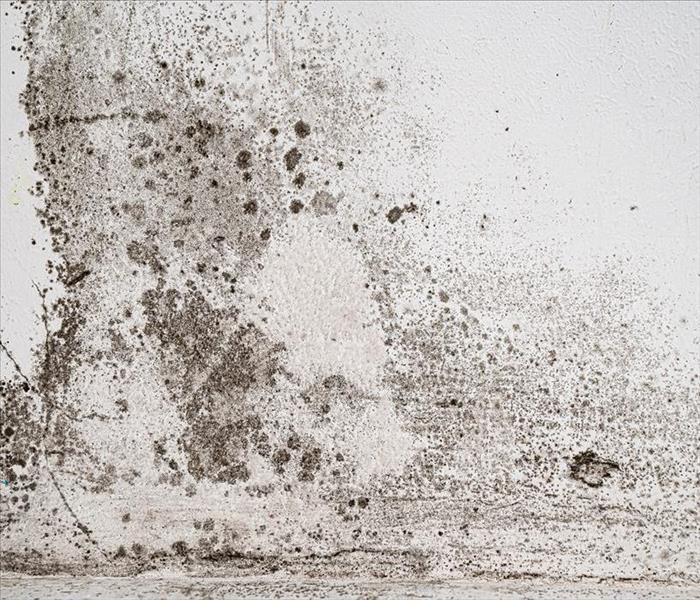How Does Water Damage Lead to Mold?
3/14/2022 (Permalink)
Water damage is something that no homeowner ever wants to experience, but unfortunately, it is a rather common occurrence. Between hidden leaks that can pop up in your plumbing system, water seepage in crawl spaces or surprise roofing issues, there are lots of ways that water damage can pop up in a home.
While water damage is an inconvenience, it can lead to an even more pressing concern: mold growth. Mold growth thrives in damp places, so any time water works its way into an area it should not be in, there is a high chance that mold will find its way there as well. Below, we will look at why mold and water damage are so closely related so you can be on the lookout for any signs of growth.
Why Water Damage Often Leads to Mold
**Mold loves humidity.** The nature of water damage can vary, but in incidents where there is flooding or general dampness in an affected area, the humidity levels can get rather high. Basements, laundry rooms and bathrooms can all turn into very humid areas, which can create the ideal environment for mold to take hold. Ideally, the humidity in an area should stay below
50% at all times in order to discourage mold growth.
**Mold spores need moisture to grow.** Many people are surprised to learn that mold spores are everywhere—in nature, mold aids with the decomposition of organic material, and its spores spread via the air. Therefore, mold spores are always floating around looking for an ideal place to land, which is how they wind up in homes (often after hitching a ride on clothes, shoes or pets). However, mold spores require moisture to grow, so while they may work their way into homes, if they cannot find an area with moisture that they can grow, they will not be able to
reproduce.
**Mold grows well in contaminated waters.** Oftentimes, water damage is caused by water that is not necessarily clean, such as rainwater or floodwater. Mold can grow especially well in these types of waters because of all the bacteria that is already present, making water damage of this type especially susceptible to mold growth.
*If you are curious about how mold remediation works, we are here to help. Contact us today to learn more about our remediation services or to report mold damages.*



 24/7 Emergency Service
24/7 Emergency Service
